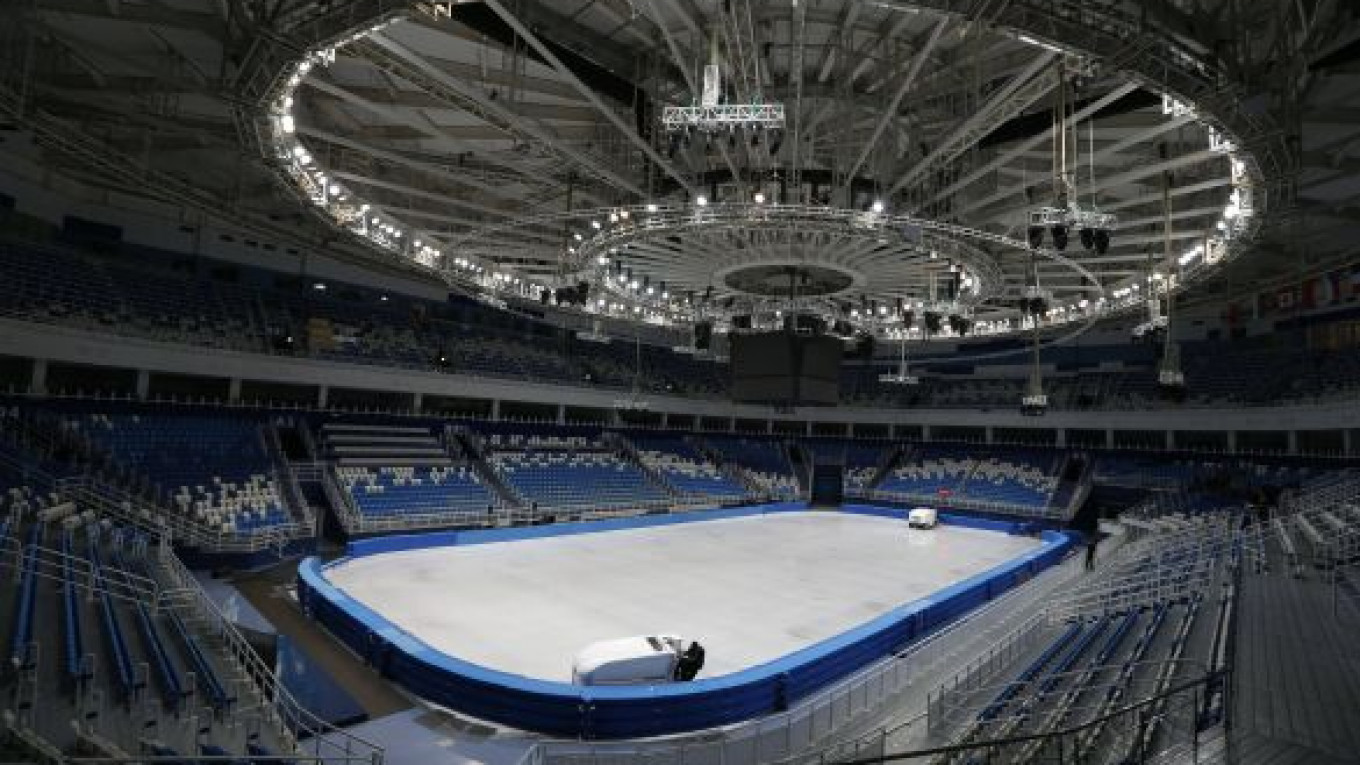NEW YORK — The campaign protesting Russia's ban on "gay propaganda" is entering a new phase, as human rights activists try to pressure the Olympics' top corporate sponsors to speak out before the Winter Games in Sochi.
The Worldwide Olympic Partners — among them Coca-Cola, McDonald's and Visa — have thus far avoided requests to explicitly condemn the law, rebuffing efforts that included behind-the-scenes meetings and correspondence with Human Rights Watch.
"It has taken months for the sponsors to formulate lawyerly responses that say nothing," said Minky Worden, director of global initiatives at Human Rights Watch. "We are going to work hard between now and Sochi to not let them off the hook."
The focus of the protests is a law passed with near unanimous support by Russian lawmakers and signed by President Vladimir Putin in June. It bans the "propaganda of nontraditional sexual relations" and imposes fines for providing information about the gay community to minors.
Its critics say the law reflects broad hostility toward gays and lesbians in Russia, fueling harassment and occasional acts of violence.
The protest movement has raised awareness about the gay rights situation in Russia and has boosted hopes among activists that the International Olympic Committee will be more attentive to human rights issues in selecting future Olympic hosts.
Nonetheless, activists acknowledge some frustration that the law remains in place — spared direct criticism by some of the Olympic movement's major players.
Both Human Rights Watch and the Human Rights Campaign have written to all of the Worldwide Olympics Partners, urging the corporations to call for repeal of the Russian law.
Unsatisfying
To date, according to the two rights groups, none of the companies has taken that step, though several have expressed general support for human rights and promoted their own nondiscrimination employment policies. There are ten Worldwide Olympic Partners in all — including General Electric, Procter & Gamble, Dow Chemical, Omega, Panasonic, Samsung and the French-based technology company Atos.
"The responses failed to recognize that their brands are propping up an event that will go down in history as the anti-gay games," said Fred Sainz of the Human Rights Campaign, the largest U.S. gay rights group.
Activist leaders say there is little interest at this stage in proposing formal boycotts of the corporate sponsors, but they hope to find other ways to intensify the pressure. Some activists have suggested a new wave of protests as the games begin in February, targeting Russian diplomatic missions and the corporate sponsors' offices.
"No one is prepared to back down," said Andre Banks of AllOut, one of the protest groups. "Consumers will hold these companies responsible."
Human Rights Watch made available to The Associated Press the letters sent by several of the corporations in response to its requests. In general, the letters — and separate statements sent by the sponsors to the Associated Press — conveyed the companies' disapproval of any form of discrimination and cited assurances provided by Russian authorities to the IOC that everyone would be welcome at the Winter Games regardless of sexual orientation.
"There is no room for discrimination under the Golden Arches," said a statement from McDonald's. "We support the IOC's belief that sport is a human right and the Olympic Games should be open to all, free of discrimination."
Visa provided a similar statement.
Home and Abroad
Coca-Cola, the target of recent gay rights protests in Atlanta and New York, noted that its employment practices had earned praise from the Human Rights Campaign over many years.
"We do not condone intolerance or discrimination of any kind anywhere in the world," it said.
Protest leaders said those practices did not excuse any reluctance to speak out against the Russian law and to take a stand on human rights in Russia beyond the Olympic context.
"You can not support gays and lesbians in one country, then stay silent on the issues in the places where gays and lesbians need vocal, powerful allies the most," said Andre Banks.
In an early phase of the protest campaign, activists called for a boycott of Stolichnaya vodka. The CEO of the company that produces Stolichnaya subsequently criticized the anti-gay law and said his firm had no ties to the Russian government.
Among gay rights activists in Russia, there have been mixed views of the protests unfolding in the U.S. and Western Europe.
"These boycotts and protests have not made any gains for the Russian LGBT community and will not in the future," said Nikolai Alexeyev, a pioneer of Russia's gay-pride movement. "I believe that a lot of people in the West have been doing PR for themselves using Russian issues."
He suggested that Western governments ban entry to any Russian politician involved in passing the anti-gay law.
A Message from The Moscow Times:
Dear readers,
We are facing unprecedented challenges. Russia's Prosecutor General's Office has designated The Moscow Times as an "undesirable" organization, criminalizing our work and putting our staff at risk of prosecution. This follows our earlier unjust labeling as a "foreign agent."
These actions are direct attempts to silence independent journalism in Russia. The authorities claim our work "discredits the decisions of the Russian leadership." We see things differently: we strive to provide accurate, unbiased reporting on Russia.
We, the journalists of The Moscow Times, refuse to be silenced. But to continue our work, we need your help.
Your support, no matter how small, makes a world of difference. If you can, please support us monthly starting from just $2. It's quick to set up, and every contribution makes a significant impact.
By supporting The Moscow Times, you're defending open, independent journalism in the face of repression. Thank you for standing with us.
Remind me later.






